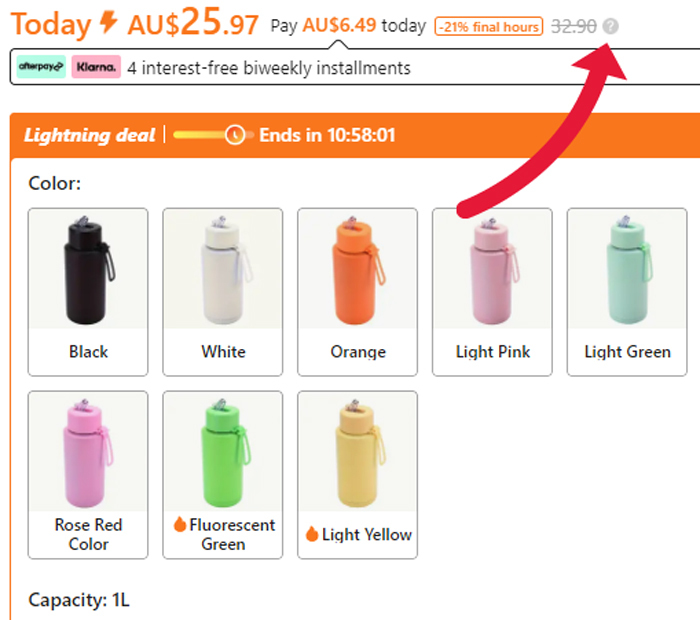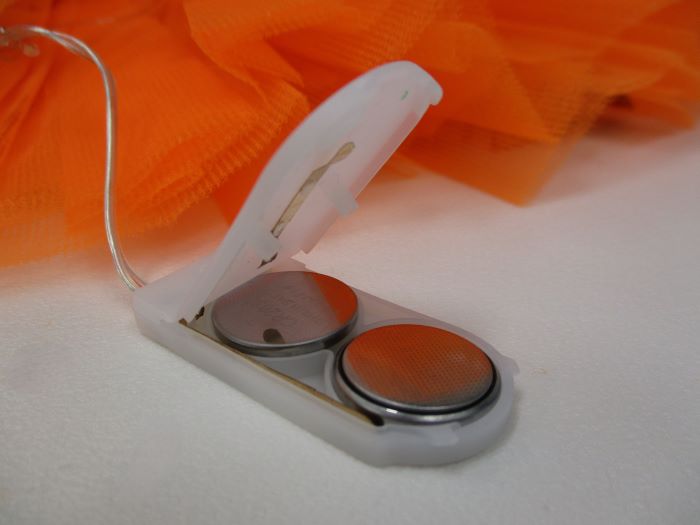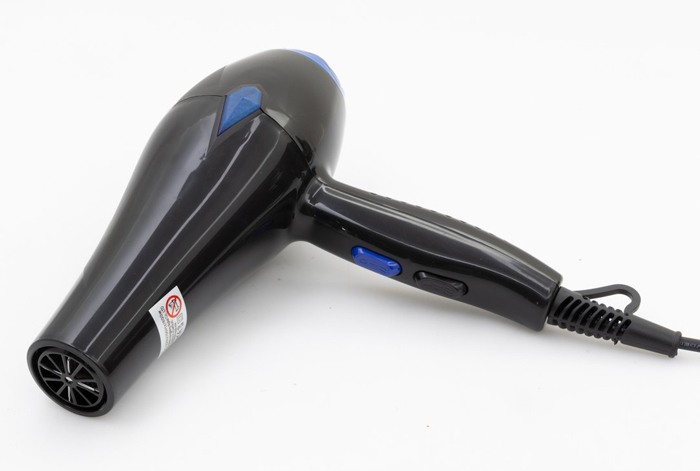Get our independent lab tests, expert reviews and honest advice.
Temu explained: Is it worth using?

Need to know
- Temu is a shopping website and app known for its broad range of products and cheap prices
- We've surveyed more than 500 people who've used the platform and spoken to experts to get their verdict
- A recent CHOICE investigation also found dangerous children's products for sale on Temu
On this page:
- Where is Temu located?
- Why is Temu so popular?
- Why is Temu so cheap?
- How do you pronounce Temu?
- Is Temu legitimate? How reliable is it?
- Is Temu safe?
- Is Temu ethical?
- Does Temu steal your information?
It’s the e-commerce platform carving out a space in Australia’s retail landscape, consistently topping the app download charts since arriving on our shores a year and a half ago.
Owned by Chinese company PDD Holdings and first launched in the US in late 2022, Temu has become known for its cheap products, incessant marketing and a gamified shopping experience.
The retail app and website sells a broad range of goods, from clothing and craft supplies to power tools and electronics. But it’s perhaps best known for its small everyday household products and novelty items.
Temu has drawn legions of shoppers since launching here. A Roy Morgan survey in March this year found that 1.26 million Australians shop the site each month, with domestic sales alone on track to reach $1.3 billion this year.
But not everyone’s a fan, with concerns about dangerous products, prices being too cheap and customer data privacy. Here’s what you should know before buying from Temu.
Where is Temu located?
Temu is available in almost 50 countries around the world, but Whale Co Inc. (the name the company is also known by) lists its location in Ireland – a popular base for international tech companies.
Despite this, many of the goods sold on Temu are made and shipped from China.
Why is Temu so popular?

Experts say an aggressive marketing strategy has played a significant role in Temu’s rapid ascent, and this is borne out when speaking to users.
Between November and December 2023, CHOICE surveyed over 500 people who had bought items on Temu, and asked them how they had first heard about the platform.
Almost 37% said they initially learned about it through some form of advertisement, while 27% said it had been featured on a social media account they follow.
Temu’s strategies have translated into significant popularity – within months of launching here, it had become one of the most popular apps in Australia. At the time of writing, it’s still topping the Google Play and Apple free app charts.
‘Gamifying’ the shopping experience
Dr Shasha Wang from Queensland University of Technology’s business school says another reason for Temu’s popularity is the unique experience it delivers to users.
“They make it fun,” she says. “They gamify the process of sales promotions and also the whole shopping experience.”
You usually have to spend a minimum amount out of your own pocket or promote Temu to your friends on social media before you can unlock a prize
For example, Temu’s smartphone app comes armed with spinning wheels and mystery envelopes that appear periodically, giving users the chance to win coupons, discounts and cashback deals to use on the platform.
Winning in these games is often guaranteed, but there’s a big catch: you usually have to spend a minimum amount out of your own pocket or promote Temu to your friends on social media before you can unlock a prize.
Quirky products

Temu’s array of quirky novelty products also helps it attract customers.
“The Australian market doesn’t have that many fun products,” says Wang.
“[Temu uses] cheap and fun products to attract attention, and while people are spending their rewards and vouchers, they actually end up purchasing more.”
Why is Temu so cheap?
Temu’s low prices become obvious after spending just seconds on its app or website.
Earlier this year, we found a men’s belt being sold for less than $6.89 (a similar item on other sites cost at least $20) and a suitcase for $43.79 (similar products were often around $100 elsewhere).
Plastered across Temu’s pages are promotions of constant sales with discounts reaching highs of over 90%, and promises of free shipping.
According to Temu, its low prices are possible because it connects consumers directly with the factories that produce its goods, many of which are in China, allowing it to cut out “multiple middlemen” and deliver “wholesale” prices to consumers.
The company says this process constitutes a “teaming up” (hence the name Temu), which pushes prices down.

But critics allege that Temu’s low prices aren’t supported by its business model. Media outlets and financial experts overseas have alleged the company is likely losing money on each order it takes in an effort to remain competitive and to build market share.
Temu has previously told CHOICE that these suggestions are “inconsistent with reality”. It says its operating model has allowed it to enjoy “astonishing” increases in efficiency, benefitting it and its customers.
There have also been more critical suggestions put forward for why the company’s prices are so low, with allegations that some of Temu’s products are made with forced labour. The company has denied these allegations.
How do you pronounce Temu?
The story behind Temu’s name outlined above might suggest you pronounce it TEE-mu, but the company’s recent advertisements have recited it as TEH-mu.
Is Temu legitimate? How reliable is it?
Our survey of 500-plus Temu users late last year, and our experience of buying products from the site ourselves, allowed us to get an insight into what it’s like to shop on Temu.
While we can confirm the outlet did deliver us the goods it advertised at the prices it promised, there are things to watch out for when using it, as you’ll read below.
Temu shoppers give their verdict
Most of the Temu customers we surveyed had bought home or kitchen items (62%) or clothing (50%). Other popular purchases included jewellery and accessories (31%), art and craft items (28%) and toys and games (27%).
Around 83% of people we surveyed said they were satisfied with what they had bought.
“You get what you pay for” was a common verdict among customers, many of whom felt the quality of the items they’d bought had been in line with their expectations – which were often low.
A large number of users were also happy with how quickly the items were delivered, while others said they’d found Temu’s refund process quick and straightforward.
Almost 77% of respondents said they would buy from Temu again and 73% said they would recommend it to others.
CHOICE survey of Temu shoppers
Happy customers:
- 83% were satisfied with what they bought
- 77% would buy from Temu again
- 73% would recommend Temu to others
Issues mentioned by some shoppers:
- Poor quality of some goods
- Concerns around ethics due to low prices
- Poor quality packaging
- Misleading product images
- Excessive marketing notifications
- Concerns about data safety
NOTE: CHOICE surveyed 538 people who had purchased from the Temu website. Survey conducted November 2023.
But some shoppers also shared negative experiences they’d had.
Customers often called out the poor quality of Temu’s goods. A few also raised questions about the company’s ethics and the conditions of the workers who make the products it sells.
Others complained about poor-quality packaging, which they said had left items damaged after delivery.
Others complained about poor-quality packaging, which they said had left items damaged after delivery
Some shoppers nominated the user experience of Temu’s website and app as a cause for irritation, saying they were unhappy with the large number of marketing and promotional notifications, messages and emails they’d received after using the service.
Others alleged that Temu’s product images were misleading, and some said they were worried about the safety of their personal information when using the app.
However, the majority of survey respondents still had a positive experience with Temu, with over three-quarters saying they’d shop there again.
Our experience with Temu
In our experience buying from Temu, we found a few aspects that we thought would be likely to frustrate and confuse consumers:
1. Sense of urgency
After selecting items to buy, we received multiple alerts warning that the items we had chosen were “almost sold out” or were already in a lot of other shoppers’ carts.

2. Questionable discounts
Temu uses strikethroughs on prices to suggest products we bought were usually sold for much more.
But the company hasn’t provided any evidence that these products had ever been sold for those higher prices on its website.
After we first investigated it, Temu added a disclaimer to its strikethrough deals, saying they’re based on the “manufacturer’s suggested retail price for the item, the price provided by the merchandise partners, or the price offered by other retailers at or above that price in the past 90 days”.
It also admits “the price may not necessarily reflect the product’s prevailing market price”.
CHOICE tip: It’s worth noting that the ACCC says a marked down price can be misleading if the retailer hadn’t sold the item at the previous price for a reasonable period of time before the sale started.
3. Difficult checkout
We were initially given the option of buying goods “as a guest” without having to create an account on the platform. After selecting this and entering payment and shipping details, we were sent back to the beginning of the checkout process – except this time we had to register an account in order to proceed.
Despite our experience, Temu has previously told us that purchasing without registering as a member is possible.
Temu tactics ‘unfair’ on shoppers
CHOICE believes many of Temu’s tactics, especially the use of limited stock indicators and countdown timers, are intended to create a false sense of urgency and are unfair on users.
Known as ‘scarcity cues’, these practices are common website ‘dark patterns’ – deceptive tactics designed to make you spend more than you intend. We’re advocating for changes to the law to crack down on these practices.
Known as ‘scarcity cues’, these practices are common website ‘dark patterns’ – deceptive tactics designed to make you spend more…
Previous CHOICE surveys have found a majority of consumers believe businesses are already required to act fairly towards them. We’re calling on the government to introduce fairness laws to stamp out business practices intended to trick or trap people.

Temu defends its sales tactics
Temu has rejected suggestions its tactics are unfair.
The company says it keeps a “leaner inventory” of products than other platforms so it can adapt to changes in customer demand. As a result, its low-stock alerts are not “marketing ploys”, it claims, but “real-time reflections” of promotional offers and the status of its inventory.
Is Temu safe?


CHOICE and our fellow consumer groups overseas have found dangerous products for sale on Temu.
Most recently, we found toys being sold on the platform were failing Australian safety standards, specifically requirements for safely securing button batteries.
When we recently tested 15 battery-operated products, including children’s watches, light-up costumes and electronic games, all of them failed at least one requirement of mandatory regulations designed to prevent children from ingesting potentially deadly button batteries.
We purchased the products in May and all of them have since been removed from Temu’s site, but 12 of the items were still for sale when we alerted the platform to the issues.
Other Temu products we’ve purchased have failed to meet standards in different ways – a hair dryer we bought from the platform in March posed a potential electrocution risk because it didn’t have the required means of securing the power cable (such as a clamp) running out of the handle.
Meanwhile, our UK sister organisation Which? has in the past year uncovered heaters that could give you an electric shock, catch fire or explode and potentially illegal weapons for sale on Temu.
Temu says it promptly removes non-compliant products, but CHOICE is calling on the company to join other online marketplaces like eBay and Amazon and sign up to the voluntary Product Safety pledge, which provides additional protections to consumers.
Is Temu ethical?
Temu has been accused of selling products made with forced labour.
In June last year, an interim report by a group of US politicians investigating forced labour concluded there was a “very high risk” that Temu’s supply chain was contaminated by this practice.
While no similar probe has been conducted in Australia, some respondents to our survey said they were concerned about how cheap Temu’s products were and what this might imply about the conditions of the workers making them.
The company has told us that accusations of forced labour in its supply chain are “completely ungrounded” and that its standards and practices on the issue are in line with other e-commerce platforms.
Does Temu steal your information?
Many consumers have told us they’re uneasy about using Temu’s app and website because they thought the company might be stealing their data or have poor privacy controls.
Data experts have previously told CHOICE that, according to its privacy policy, Temu’s privacy practices do not appear to be any worse than many other e-commerce retailers.
The site collects the kind of information we’re regularly asked to give away when shopping online, such as addresses, contact details, and also shares this with its “merchandise partners” who sell on the platform.

It also collects details on the device you’re using and your IP address, and approximate location.
Customers can log in to Temu via their social media profiles like Facebook, and experts have previously raised concerns at this, noting that Temu collects images and other data from these connected profiles.
For this reason, these experts have recommended using a separate email address to log in to Temu and not signing in via social media.
Experts have recommended using a separate email address to log in to Temu and not signing in via social media
Temu says the information it collects can be used for a variety of purposes, including for sharing with affiliate partners or for its own marketing and advertising.
Temu has previously told CHOICE that users in Australia have the right to access, delete or correct information, but that it retains “some necessary data in accordance with local laws and audit requirements”.





